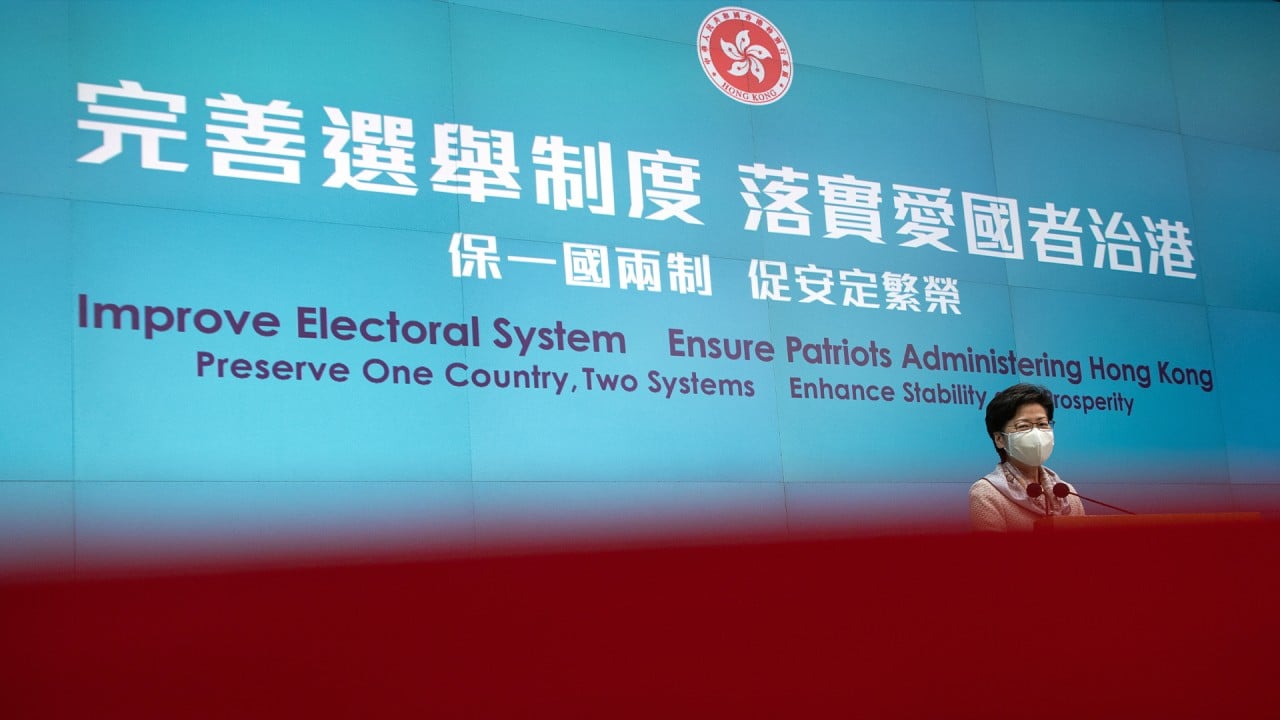
Exclusive | Don’t undermine Hong Kong’s rule of law by politicising presence of foreign judges, ex-justice minister Elsie Leung cautions Western countries
- City’s first secretary for justice advises judges from other common law jurisdictions working in Hong Kong to stay above the fray
- Veteran pro-Beijing stalwart also defends the drastic overhaul of Hong Kong’s electoral system approved last week by China’s top legislative body
Former justice minister Elsie Leung Oi-sie has cautioned Western governments against undermining Hong Kong’s rule of law by politicising the presence of foreign judges in the city and pressuring them to quit.
The city’s first secretary for justice advised judges from other common law jurisdictions working in Hong Kong to stay above the fray, pointing out that they were free to express disagreements with any government stance through dissenting rulings.
She argued that Beijing remained committed to the city’s democratic development despite the controversial shake-up of its entire political structure to ensure that only those deemed to be “patriots” would get to be elected to office or govern Hong Kong in any way.
Leung, who has had a hand in all three previous electoral-reform drives since the former British colony returned to Chinese rule in 1997, said Beijing had never shut the door to greater democracy.
Little hope of Hong Kong political change over next decade: pro-Beijing heavyweights
She cited the breakthrough in 2010, when a compromise with opposition parties enabled the addition of five so-called super seats to the legislature which would be directly elected by voters across the city.
“[Beijing officials] could have said let’s remain at the same spot. But as you could see, they didn’t do that,” Leung recalled.
Leung rejected concerns that opposition candidates were being shut out, insisting they would be welcome to participate.
With the power to nominate candidates now, the Election Committee should judge opposition figures based on whether they would threaten the interests of Hong Kong and Beijing, rather than their dissenting political views, she said.
“We are only preventing those who will harm the interests of the country and Hong Kong from running for election,” she said.

Politicians in Britain have urged British judges to stop working in Hong Kong, where it has long been a tradition to recruit overseas judges from other common law jurisdictions to serve in the city’s Court of Final Appeal.
Leung, a solicitor by trade, said the spirit of the arrangement was not only to maintain the city’s inherited common law system, but also for the judiciary to benefit from outside expertise.
“Every justice gets to write a judgment,” she said. “If all other justices get it wrong and [the foreign justice] is the only one who gets it right, the whole world will be able to see his correct decision and finds others unjust.”
“If you criticise a barrister for coming to Hong Kong to serve, is that the rule of law? That’s not my understanding,” Leung said. “Even if you are representing the prosecution, when you present the law and argument comprehensively and fairly, you are actually helping to establish the rule of law.”

Leung insisted that the independence of the judiciary remained uncompromised, regardless of the changes in Hong Kong.
“Why are there still so many [judicial reviews] against our government? If our judges are not impartial, there wouldn’t be so many judicial reviews,” she said.
While securing bail has become difficult for suspects charged under the national security law, Leung argued that their rights were not absolute and judges were bound to abide by the new legislation.
Electoral changes about driving Hong Kong back to straight and narrow
She said the national security law and electoral overhaul were in response to the extraordinary turmoil of 2019, and she did not expect there would be a trend of more drastic measures initiated by Beijing.
But asked when Beijing might decide that the city was back on the right track and loosen its grip on the political system, Leung said it would not happen for another five to 10 years.
“If it could be done within the tenure of one administration, then such a drastic reform would not have been required in the first place,” she said.


